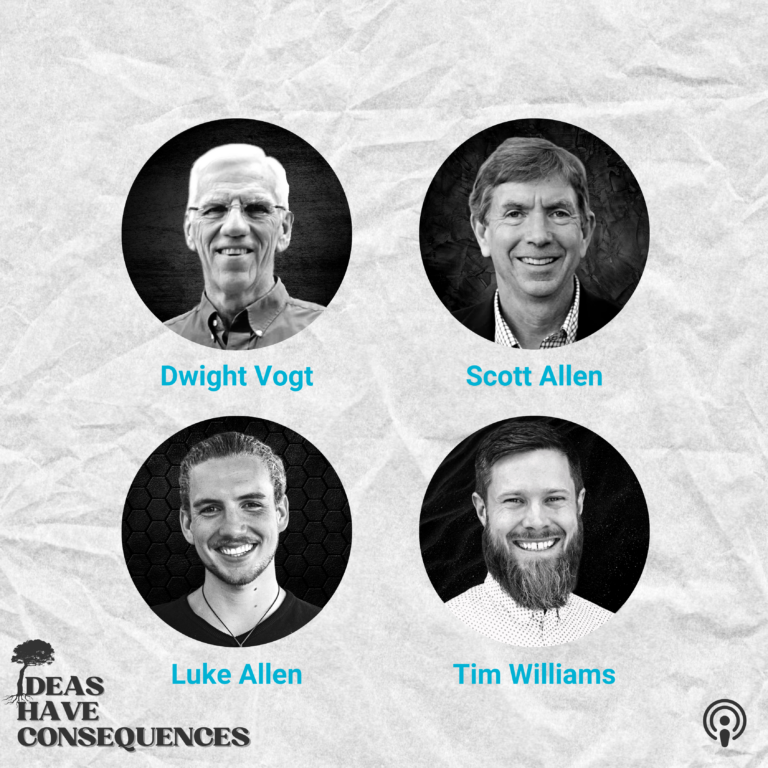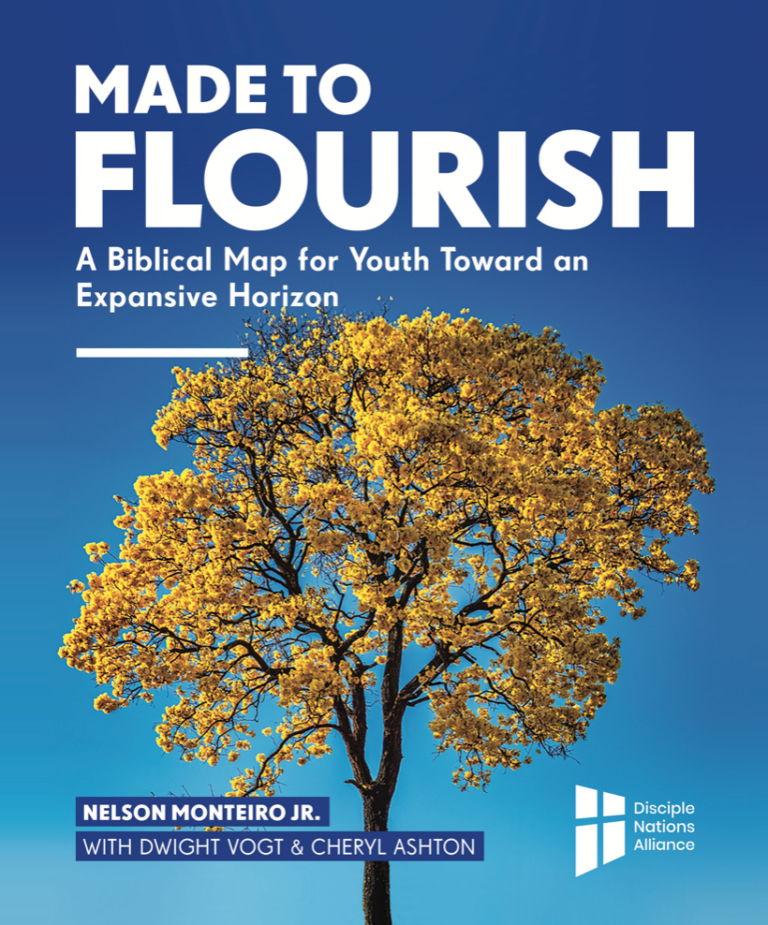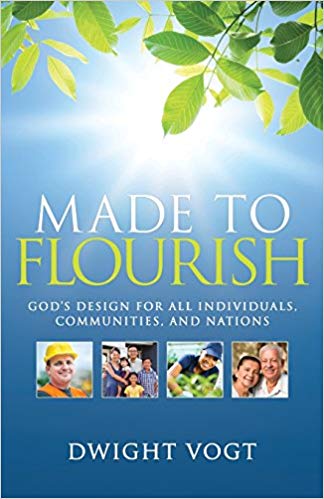At a Glance
Prosperity and flourishing are part of God’s beautiful plan for His people and his desire for nations. But trials, tribulations, and persecutions are also a reality in our fallen world.
In today’s discussion, the team dives into what the Bible teaches about prosperity and flourishing—concepts many avoid for fear of being associated with the heretical “prosperity gospel.” We point out the critical lies of the prosperity gospel and contrast it with the flourishing God wants for all of us. Does God want us to be materially prosperous? When does a good thing cross over into idolatry? How can we avoid overreacting against prosperity by emphasizing austerity? Join us as we unpack all this and more in today’s episode of Ideas Have Consequences.
What You'll Hear
Is “Excess” or Abundance Sinful? (3:09)
We see the immense diversity, plenty, and even excess in the way God created the world in Genesis 1-2 and in the description of the new heavens and earth in Isaiah 25:6
Will Christians Have Lives of Flourishing and Prosperity? (16:08)
Proverbs and Psalms promise prosperity over and over. What type of prosperity are they referring to? Is it physical, emotional, relational, or all of the above?
Idolatry is a Vital Part of any Discussion on Prosperity (22:21)
Our role is to worship God. Anytime we put anything in God’s place, we will stop flourishing immediately.
How Do we See Flourishing in Our Relationships with Others? (25:09)
Selflessness and dying to self to serve others bring about relational prosperity.
Those who love their neighbors as themselves are the happiest people you’ll ever meet.
The Tension Between Flourishing and Suffering (28:12)
What about those who honor and obey God, yet still suffer?
Consider Joseph, Paul, Peter, Daniel, and others who were imprisoned and persecuted.
How Do we See Flourishing in Our Relationship to Creation? (30:42)
We are to “work the garden and keep it” (Gen. 2:15).
To bring about flourishing and beauty on the earth, we are to work with what God has made and look for ways to improve it or make it better.
What Role does Rest Play in a Life of Prosperity? (33:05)
How does rest restore us to live better, healthier lives?
Rest gives us a chance to enjoy what God has given us.
It puts us in a posture to recognize what we have is not our own and, therefore, helps us avoid idolizing work and business.
Back to a Theology of Suffering – How can we Prosper and Suffer Simultaneously? (37:14)
We live in a fallen world that affects all of us. Even in a fallen world, however, we are called to go out to the fallen world and be salt and light.
Matt. 5:10-12: “Blessed are those who are persecuted because of righteousness, for theirs is the kingdom of heaven. Blessed are you when people insult you, persecute you and falsely say all kinds of evil against you because of me. Rejoice and be glad, because great is your reward in heaven, for in the same way they persecuted the prophets who were before you.”
We are required to suffer to live the life God has for us. Whether that looks like late nights doing homework, standing up for injustice in the face of opposition, or simply living a healthy life, when iron to sharpen iron, there is friction. Consider William Wilberforce as an example of someone who suffered for the good and flourishing of millions.
“For the joy set before him he endured the cross” (Heb. 12:2b)
What about the Prosperity Gospel? (42:21)
How is it different from biblical prosperity?
It starts with the truth that God wants you to live a good life, but then uses God more as a means to an end.
The mission of the prosperity gospel is inward and self-focused, whereas the mission of the true gospel is to be outwardly focused on loving God and loving others.
Should Christians Live Simple Lives with the Bare Minimum? (49:32)
Are we called to be ascetics?
For some, yes. But that’s not a hard and fast rule.
There’s nothing inherently wrong with wealth, but wealth can easily become an idol.
Final Thoughts (1:00:31)
God wants really good things for our lives, as any loving father does.
The way we use our time, and especially free time, can hinder the amount of flourishing in our lives.
A flourishing life comes as a result of a fruitful life. So let’s focus on how we can be as fruitful as possible with what God has given each of us.
Using the link above, you can read the transcript, listen along, and adjust the speed of the podcast while you listen.
But as a general rule, if you're living in the way that God designed you to live, the natural outworking of that is flourishing.
Scott Allen (21:52)

Go Deeper
Made to Flourish: A Biblical Map for Youth Toward an Expansive Horizon
Made to Flourish is a study series for youth that looks at God’s plan for human development. It focuses on the foundational principles God set at Creation for human beings to flourish.
The 21 studies help parents, teachers and youth pastors build or reinforce the foundation blocks of the Christian worldview for youth. Each study also fosters the application of these truths by the young person in real-life situations. This curriculum was originally designed and taught to young people aged 12-14 years. But it can be adapted to serve different age groups. It can also be used in different contexts such as the home for family devotionals, the Bible component in a homeschool curriculum and a discipleship series for youth ministries.
Made to Flourish: God’s Design for all Individuals, Communities, and Nations
We all want to progress and see life get better. We wake up in the morning and hope today is better than yesterday. Whether we’re talking about individuals or communities or nations, people want to grow and progress. This desire is wired into us. How does the Bible and its comprehensive worldview speak to this impulse…or does it? More specifically, how does this fit into the Christian gospel? What does it mean to truly flourish and how do we do this? What is the path to flourishing for individuals, communities, and even nations? In Made to Flourish, Dwight Vogt responds to these questions, telling the personal story of what he has learned from reflection and experience.
Quotes
We have to get past prosperity as silver and gold, or even food. Because if that was our definition of prosperity — just something material in front of your eyes. But if you think of the word shalom and you think of the relational emphasis of shalom — in terms of our relationship with creation, relationship with God, relationship with one another, it’s very, very broad and rich, and we all know what Shalom feels like. And sometimes some of our best moments aren’t surrounded by wealth. -Dwight Vogt (19:37)
As a general rule, if you’re living in the way that God designed you to live, the natural outworking of that is flourishing. -Scott Allen (21:52)
If you don’t have a sense of who God is, and how he is the Provider, you’ll be led astray [into idolatry]… and you won’t flourish. -Dwight Vogt & Scott Allen (23:34)
The mission of the church is to be a force of transformation, a force of blessing — of salt and light into every area of society — and to family and community and nation. -Tim Williams (46:14)
Our overall calling is to serve and love God and others. And… the best way to do that is to have as few idols in our life as possible, because those are distractions to that call. -Luke Allen (55:46)
How can I create a discipline of appreciating beauty, because that is flourishing. If I take time to engage and appreciate the beauty that God has put out there for us to enjoy, it would enrich my life, it would honor Him. -Tim Williams (1:03:13)
Do I pursue flourishing, or do I pursue fruitfulness and I think the path to flourishing is fruitfulness. -Dwight Vogt (1:03:49)
God calls us to be fruitful. He’s given each of us desires, passions, gifts, and he doesn’t want us to waste those. He wants us to find how we can utilize those best to glorify Him and serve others. -Luke Allen (1:04:41)






2 Responses
Great discussion – the kind that forms peoples thoughts and ideas as they listen. Personally, it offered me lens to evaluate my activities/endeavors in life and to consider God’s invitation to flourish in all of those areas.
This was expressed in a way that affirmed there are pitfalls; prosperity gospel as one extreme and avoiding enjoyment that God intends as another. The heart behind the message was not one of pitfall avoidance, but rather to hear and be drawn in to the invitation to engage in the beauty, majesty and delight that God offers…not just as a recipient, but as an agent (image bearer) of it. An invitation that is not a respecter of life circumstance.
Thank you so much for taking time to share this very encouraging feedback and your meaningful reflections from the episode! We hope to stay in touch!
From Dwight: I especially appreciated the line: “the kind that forms peoples thoughts and ideas as they listen.” This is exactly what we hope is happening!
From Luke: “It sounds like you really have internalized the discussion!”
From Tim: “I am personally still working on my discipline of beauty (today I took time to watch a blue bird, I am really enjoying the flowers that are blooming these days, and I am taking more time to watch and enjoy my own kids!), and I am continuing to reflect on this important idea of shalom!”